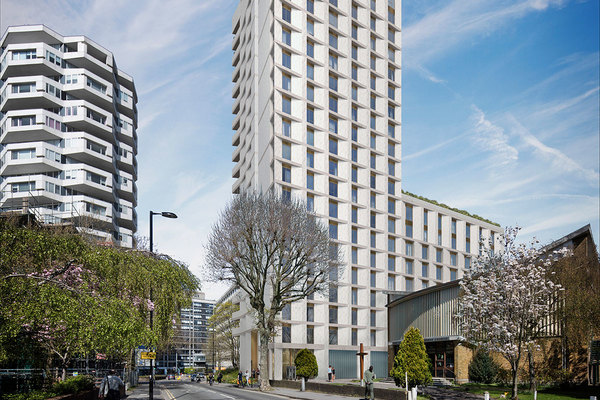You are viewing 1 of your 1 free articles
 Jules Birch
Jules BirchPlanning regulations and space standards are there for a good reason – micro-homes aren’t the answer
Jules Birch criticises a report by thinktank Adam Smith Institute that suggested micro-homes as a solution to the housing crisis
‘Shrinkflation’ made the headlines this week as government statisticians highlighted the way that food manufacturers reduce the size of their packets rather than put up the price of their products.
Most commonly seen in bread and cereals, it means you now get 10 Jaffa Cakes when you used to get 12.
But another news story got me wondering about whether the same thing could happen in housing.
“Micro-homes could solve London’s housing crisis”, said a BBC headline based on a new report from the Adam Smith Institute.
That got my attention on two different levels. First because of innate scepticism that any single idea can ‘solve’ the housing crisis.
“The grain of truth is that young people with no families who work in London might choose to live closer to the centre even if it meant living in a smaller home”
Second because claims about housing by the Adam Smith Institute tend to start with a grain of truth but then turn out to be a diatribe about planning.
This one is no exception.
The grain of truth is that young people with no families who work in London might choose to live closer to the centre even if it meant living in a smaller home.
Size Doesn’t Matter quotes examples from London and New York of developments that have won awards for homes that are popular with residents but which do not meet the minimum space standard of 37sqm.
While acknowledging that micro-housing is not for everyone, it argues that it could offer younger people the chance to live centrally, close to entertainment and other amenities at an affordable price.
Micro-housing is not the same as a cramped sub-division of existing buildings, it argues, but means custom-designed units that have won awards and are often accompanied by communal amenities.
But then, sure enough, it turns out to be all about planning when it says: “To bring rents down to truly affordable levels, alternatives to reforming the planning system to allow more homes to be built are inadequate.”
And so “local authorities must reverse their opposition to smaller units in order to provide Londoners with more housing choice at affordable levels”.
Except for the fact that micro-housing already exists on a large scale, as anyone privately renting a shared house or flat will testify.
The report acknowledges that and argues that purpose built small homes would be a better alternative.
Pocket Living already develops homes just above the minimum for sale at 20% below market rates on developments like this that are supported by the Greater London Authority – hardly evidence of local authority opposition.
And there are two other forms of micro-housing that don’t get mentioned in the report at all.
First is purpose-built student accommodation.
Size is one big reason why it has appeared in towns and cities all over the country and why it is so popular with international investors.
When you can cram far more student units into a given floorspace than any other form of housing, this is not surprising.
However, far from leading to the fall in rents envisaged by the Adam Smith Institute, the boom in building and rising standards have been accompanied by significant rent increases over the past six years.
Second is permitted development. It is surprising this does not get a mention in the report as it seems to embody exactly what it is advocating: housing that can be built outside the planning system and with no regard to space standards.
“The results of the permitted development changes so far include ‘homes’ as small as a budget hotel room, buildings with no private or communal amenity space and residential developments in the middle of industrial estates”
Under a consultation that closed last week, permitted development would be expanded beyond converted offices to include other types of building and allow extra floors to be added.
However, far from leading to funky apartments designed to appeal to the Adam Smith Institute’s carefree millennials, the results of the permitted development changes so far include ‘homes’ as small as a budget hotel room, buildings with no private or communal amenity space and residential developments in the middle of industrial estates. Plus, of course, big profits.
Planning regulations and space standards can seem like so much red tape to developers frustrated by the time it takes to get their schemes built but they are also there for good reasons.
Like most ideas that claim to be able to fix the housing crisis with one simple solution, this report is several Jaffa Cakes short of a full packet.
Jules Birch, award-winning journalist
Listen to our Housing Podcast episode on micro-homes:












